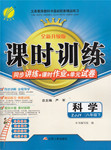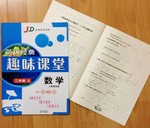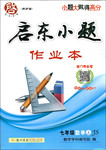题目内容
【题目】短文改错
假如英语课上老师要求同桌之间交换修改作文,请你修改你同桌的以下作文。文中共有10处错误,每句中最多有两处。错误涉及单词的增加、删除或修改。
增加:在缺词处加一个漏词符号∧,并在此符号下面写出该加的词。
删除:把多余的词用斜线\划掉。
修改:在错词下面划一横线,并在该词下面写出修改后的词。
注意:
1、每处错误及其修改均仅限一词;
2、只允许修改10处,多者从第11处不计分。
As is known by all, with the improvement of people’s living standards, cars have become a popular means of transport, bring great convenience to our life. However, they have also caused some problems such as air pollution and traffic jam.
How can we solve these problems then? As far as I am concerning, riding bicycles is a good solution. For one thing, bicycles don’t need any petrol but they are energy-saving. For another, bicycles are environmentally friendly because of they won’t give off waste gas. Beside, riding bicycles is a good way for us to exercise and it is beneficial to our healthy.
As result, let’s take the responsibility to build up a low-carbon city by riding bicycles. Come on and join them.
【答案】
【1】by--to
【2】bring---bringing
【3】jam---jams
【4】concerned
【5】but--and
【6】of去掉
【7】beside---besides
【8】healthy--health
【9】as后面加a
【10】them--us
【解析】
【1】by—to 考查固定短语。As is known to sb 对,,来说是了解的;
【2】bring---bringing 考查非谓语动词 。句意:众所周知,随着人们生活水平的提高,车已经成为新的交通方式,给我们的生活带来很大的方便;
【3】jam---jams 考查名词的复数。句意:然而,他们导致许多问题如空气污染和交通堵塞;
【4】concerned 考查固定短语 as far as one is concerned 就。。而言;
【5】but—and 考查连词。句意:一方面自行车不需要油并且节省能源;
【6】of去掉 考查连词。Because of 加名词或动名词,because是连词。
【7】beside---besides 考查副词。Beside在。。旁边。Besides 况且;
【8】healthy--health 考查名词。句意:这对我们的健康是有好处的;
【9】as后面加a 考查固定短语。As a result 结果;
【10】them—us 考查代词。句意:来加入我们;

 课时训练江苏人民出版社系列答案
课时训练江苏人民出版社系列答案 黄冈经典趣味课堂系列答案
黄冈经典趣味课堂系列答案 启东小题作业本系列答案
启东小题作业本系列答案